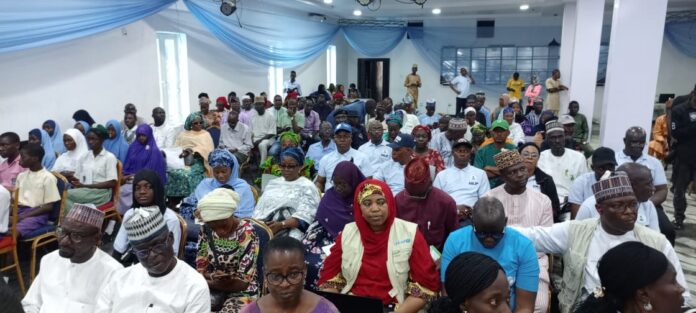By Olufemi Oni, Ilorin.
Thirteen years after the Kwara State government ended working relationship with the UNICEF, the global organisation has renewed relationship with launch of the Nigeria Learning Passport (NLP) in the State.
The NLP is an online educational platform, which provides continuous access to quality education for learners in Nigeria, particularly those who are out of school, including those in need of additional support, and children in areas with little access to technology or school facilities.
Speaking at the launch of the project in Ilorin, the state capital, on Thursday, the UNICEF Chief of the Field Office, Kaduna, Mrs. Gerida Birukila, said the launch marked the restart of a partnership between the UNICEF and Kwara state in the education sector.
Represented by the Education Officer, UNICEF Kaduna Field Office, Bala Dada, the UNICEF boss said Kwara State is the 20th State to launch the NLP and to join the global movement of reimagining education.
“With the support of Microsoft, GPE, Airtel, HIS towers and TECHNO, this partnership will build the capacity of 3,000 teachers on digital literacy skills to deliver quality basic education to 120,000 children in Kwara State-government-owned within one year (teacher-pupil ratio 1:40), providing greater access to reduce the number of out of school children (OOSC) and increase literacy and numeracy”, she said.
“The Learning Passport was created globally by UNICEF and Microsoft at a time when education experienced unprecedented disruption due to COVID-19.
At the height of the pandemic, 1.6 billion learners were locked out of the education system.
“Since 2022, the project has enrolled 1,478,984 students. Learning passport is available for free on online, mobile, and through offline devices. We are working with Airtel and IS to bridge the data and connectivity gaps. If you have an Airtel sim card, the NLP can be used without data costs.”
UNICEF commended the Kwara State government on its commitment to education, especially with investment in the education sector across all levels.
She added: “UNICEF is happy to note that The Kwara Education Transformation Agenda (KWETA) has put digital education at the fore of her education programmes with interventions like the StudyLab, KwaraLearn and Digital Learning centres. You have continued to play an exemplary role in ensuring that children have access to quality education, even in the face of major challenges.”
Also speaking, Governor AbdulRahman AbdulRazaq of Kwara State said his administration would continue to subscribe to policies and programmes that will facilitate accelerated educational development in the state.
He said: “After decisively dealing with the inherited challenges of nonpayment of salaries and abysmal state of the learning environment, our focus has been to improve the quality of teaching and learning outcomes through unified curriculum, motivated human resource, and technological tools that ensure a new regime of accountability and modern teaching techniques.
“Along with massive investments in the establishment of digital literacy centres across the state in collaboration with the UBEC, I am happy to say that our strategy has drastically improved literacy and numeracy levels, raised enrolment of learners in the state, and reduced the rate of out of school children.”

